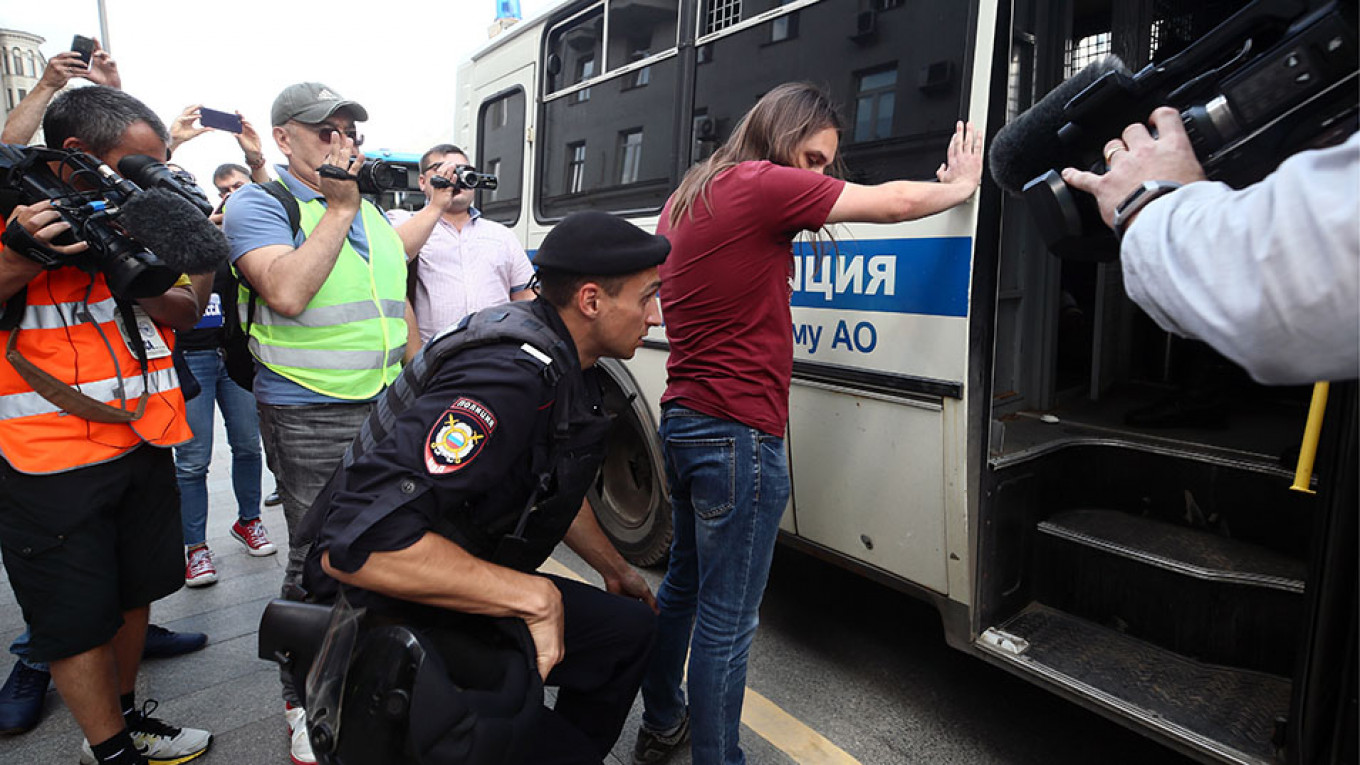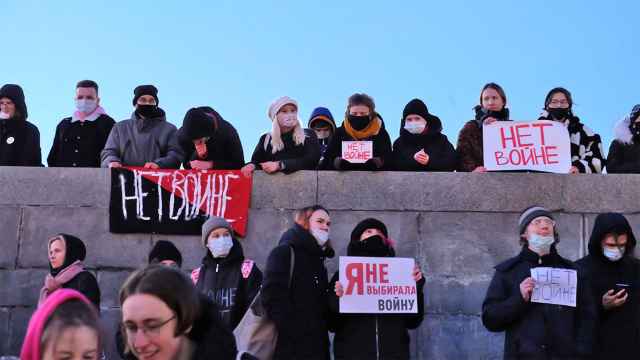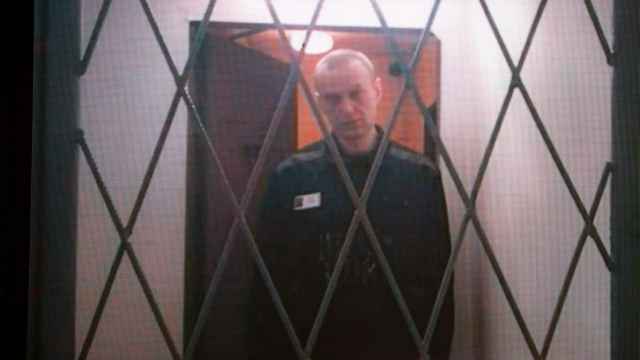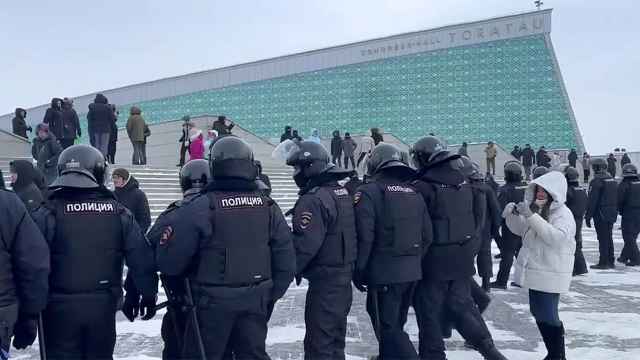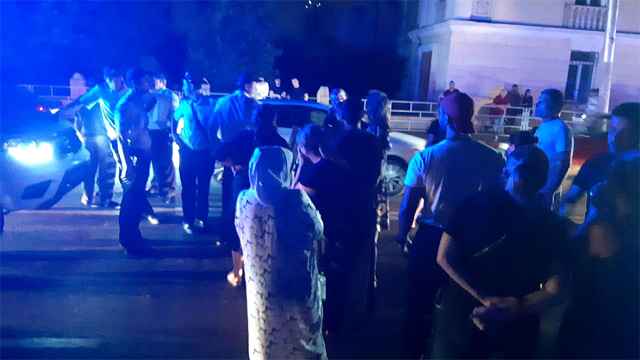There has been a significant and sustained shift in the Kremlin’s relationship with the Russian opposition, and with the Russian public more broadly. Authorities across the country have issued ever fewer permits for protests and rallies, while increasing the scale and severity of the law-enforcement response to unsanctioned gatherings.
It was not always thus. Throughout the so-called ‘Bolotnaya’ protests that accompanied Vladimir Putin’s return to the Kremlin in 2011–12, the government allowed most protests to go ahead unhindered. Riot police only became involved in the infamous rally on 6 May 2012, which resulted in dozens of arrests and numerous lengthy prison terms. That, though, was the exception to the rule and remained so until recently.
As Russia geared up for Putin’s 2018 re-election, however, the screws began to tighten. The government barred most of opposition leader Alexei Navalny’s planned anti-corruption protests through 2016–18, daring supporters to come out and face down the riot police — which many did. As protest bans and dozens of arrests failed to keep people off the streets, officials began pre-emptively arresting Navalny and other opposition leaders on charges of inciting participation in illegal rallies. When that, too, failed, the batons began swinging more wildly, and arrest numbers climbed.
Counterproductive violence
The temperature of confrontation between the Russian state and disaffected citizens has increased across the board. Riot police in Yekaterinburg fought hard for weeks against protesters trying to prevent a park there from being used as a site for the construction of a new church.
In the Arkhangelsk Oblast town of Shiyes — where the government is constructing a toxic waste dump to handle rubbish from as far away as Moscow — authorities have likewise fought running skirmishes against protesters since April. The broken bones and 1,400 arrests of this weekend’s election protests in Moscow are only the most visible and striking example of a much larger trend.
Time and again, though, the state's recourse to violence has been counterproductive. In many cases — including in both Ekaterinburg and Shiyes — authorities have backed down, at least temporarily. Unprovoked violent repression heightens protesters’ sense of injustice, sharpens their sense of ‘now or never’, and hardens their sense of solidarity. The Kremlin certainly understands this: it is the closest thing we have to an iron law in the study of protest and political contestation, and Putin has advisers who read enough social science literature to know that.
Motivations for the Kremlin’s policy shift
The object, then, is clearly not to demobilize Russia’s opposition. That leaves two other possible explanations for this dramatic shift in policy.
The first is that the Kremlin is sending a signal to dissatisfied Russians who are considering what role they want to play in the country’s political future. Putin’s poll numbers have receded from their post-Crimea highs over the past year or so, while a majority of survey respondents now believe the country is headed in the wrong direction.
For some, the source of disaffection is local and expressly political — such as in the Yekaterinburg, Shiyes and Moscow protests. For many more, though, it’s a general sense of malaise, the result of five years of declining real incomes in the absence of any concerted policy response from the Kremlin that might boost ordinary Russians’ fortunes.
For those who might have been considering throwing their support to the opposition, Saturday’s scenes will have signaled consequences greater than futility. While blood and a night in prison will have increased the solidarity of those who were there, it may have the opposite effect on those who are not yet committed to the fight.
The second potential target for viral videos of repression may be a much more rarified audience: Russia’s political, economic and security elite. Generally seen as illegitimate by ordinary Russians, the elite rely on Putin to manage the relationship with the public, so that the system can continue to function and rents can continue to be extracted.
Ideally, that public-management strategy rests on Putin’s popularity. If, however, the elite begin to fret that Putin’s popularity may be slipping, they will want to know that he will push when the public shoves. Putin, in turn, knows that the greatest threat to his continued rule comes from the potential for a catastrophic loss of elite confidence. His strongest incentive, then, is to show the elite that he has the courage of their convictions.
Putin’s insoluble dilemma
In the end, though, Putin faces a conundrum. On the one hand, the immediate demands of political survival — from keeping fence-sitters out of the ranks of the opposition, to staving off challenges from a nervous elite — require him to demonstrate that he’s unafraid to use force against his own citizens. On the other, because violence serves to galvanize the opposition, those very demonstrations increase the risk of a revolutionary spiral of escalation.
This is not to say that Russia faces a revolution, now or any time in the foreseeable future. But Putin now faces the same insoluble dilemma that is eventually faced by every autocrat who spends enough time in office. Violence becomes both key to their survival and contains the germ of their downfall.
This piece was originally published by the IISS.
A Message from The Moscow Times:
Dear readers,
We are facing unprecedented challenges. Russia's Prosecutor General's Office has designated The Moscow Times as an "undesirable" organization, criminalizing our work and putting our staff at risk of prosecution. This follows our earlier unjust labeling as a "foreign agent."
These actions are direct attempts to silence independent journalism in Russia. The authorities claim our work "discredits the decisions of the Russian leadership." We see things differently: we strive to provide accurate, unbiased reporting on Russia.
We, the journalists of The Moscow Times, refuse to be silenced. But to continue our work, we need your help.
Your support, no matter how small, makes a world of difference. If you can, please support us monthly starting from just $2. It's quick to set up, and every contribution makes a significant impact.
By supporting The Moscow Times, you're defending open, independent journalism in the face of repression. Thank you for standing with us.
Remind me later.



